
petsplaceAs the days get shorter and the temperatures drop, winter is on its way, and you might even see the first snowflakes of the season. As they say in Game of Thrones, “Winter is coming!”
While dogs may be eager to play in the snow and cats may be looking forward to cozying up by the fire, winter brings a set of unique challenges for our furry friends. From the cold weather to potential hazards like harmful chemicals, it’s important for pet parents to know how to keep their four-legged companions safe and comfortable during the colder months. Let’s dive into what you need to watch out for this winter season.
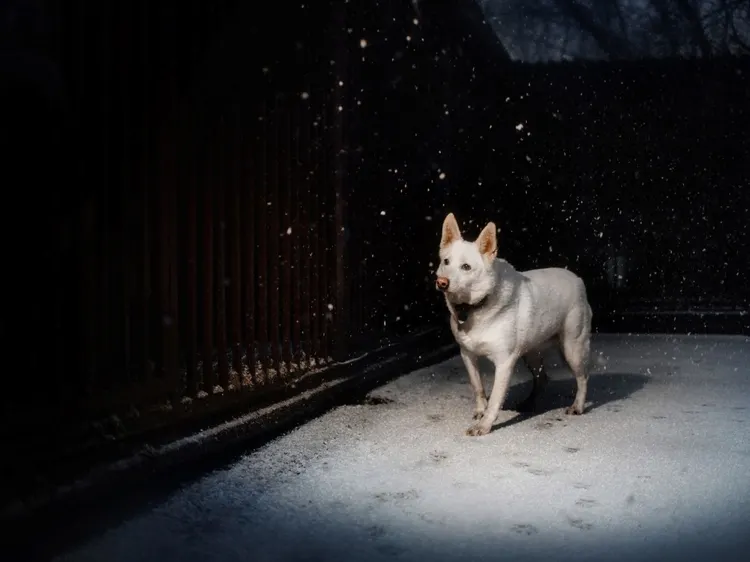
Weather Hazards
For many parts of the country, winter brings shorter days, colder temperatures, and the chance of freezing rain, snow, and icy conditions. This makes it even more important to take precautions when your pets are outdoors. Just like humans, pets can be at risk for hypothermia, especially puppies, kittens, senior pets, and those with underlying health issues like heart disease or diabetes. To keep them safe, it’s a good idea to limit your pet’s time outside when temperatures dip.
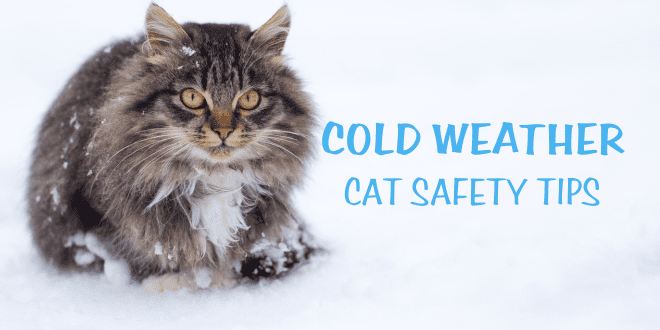
Winter Weather Safety for Cats
Keeping your cat indoors year-round is always a good idea, but it becomes even more important during the winter months. However, if you’re caring for an outdoor, stray, or feral cat, it’s essential to provide them with insulated shelter to keep them warm and safe. You can find winter cat shelters at pet stores or even build your own DIY version to offer extra protection.
Additionally, outdoor cats often seek warmth by climbing into car engines, which can be dangerous when you start your vehicle. Make it a habit to knock on your car hood or honk the horn before turning on your engine to ensure no curious cats are hiding inside.

Winter Weather Safety for Dogs
Even though dogs still need regular walks in the winter, some adjustments may be necessary to keep them safe and comfortable. You may need to change your walking times and routes to limit exposure to cold weather, snow, frozen ponds, and other winter hazards. With shorter daylight hours, it’s also important to make sure your dog is visible during those early morning or evening walks—consider a reflective collar, leash, or attachable lights.
Depending on the weather in your area, you might want to outfit your dog with some cold-weather gear, like a winter jacket. Keep in mind your dog’s breed and coat type to assess their weather tolerance and jacket needs. For example, a Siberian Husky is much better suited for the cold than a Chihuahua!
No matter your dog’s breed or how well they’re dressed for the weather, their outdoor time should be limited when temperatures dip below freezing. Be sure to talk to your vet about your dog’s cold tolerance and any specific winter needs they might have.



Winter Paw Protection
If you live in a snowy climate, it’s a good idea to think about paw protection for your pet when they go outside during the winter, especially during walks. In addition to the risks of frostbite and slipping on icy surfaces, a dog’s paws can come into contact with harmful chemicals or irritants like antifreeze, de-icing agents, and salt.
Dog winter boots are a great option—they can provide traction on icy sidewalks, keep paws warm in freezing temperatures, and protect from chemicals or irritants on the ground. Just make sure the boots fit properly and check your dog’s paws regularly for any signs of discomfort.
If you don’t use boots, it’s still important to clean your dog’s paws after walks and trim any long fur around their toes. This helps keep their paws clean and dry, reducing the risk of irritation.
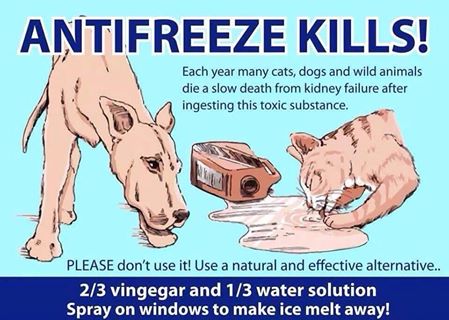
Antifreeze Dangers
Ethylene glycol, more commonly known as antifreeze, is highly toxic to pets. Unfortunately, during the winter, it can often be found on streets, sidewalks, parking lots, and driveways. It may leak from cars and snowplows or be spilled by car owners when topping off engine fluids.
Even small amounts of antifreeze can cause serious harm or be fatal to cats and dogs. Pets often ingest antifreeze by licking it off the ground or cleaning their paws after stepping in it. To protect your pet from antifreeze poisoning, keep cats indoors, always keep dogs leashed and supervised during walks, and clean up any antifreeze spills around the house immediately. If you suspect your pet has ingested antifreeze or shows signs of poisoning, such as disorientation, vomiting, or lethargy, seek veterinary care right away.

Winter Hazards in the Home
While staying indoors is often the safest option for your pet during the winter, there are still potential hazards lurking around your home. What you see as a cozy fireplace or festive decorations can pose serious risks to your furry friend. To ensure your pet stays safe, it’s important to keep a few key precautions in mind even when you’re inside. Here’s what to remember to keep your pet out of harm’s way during the colder months.
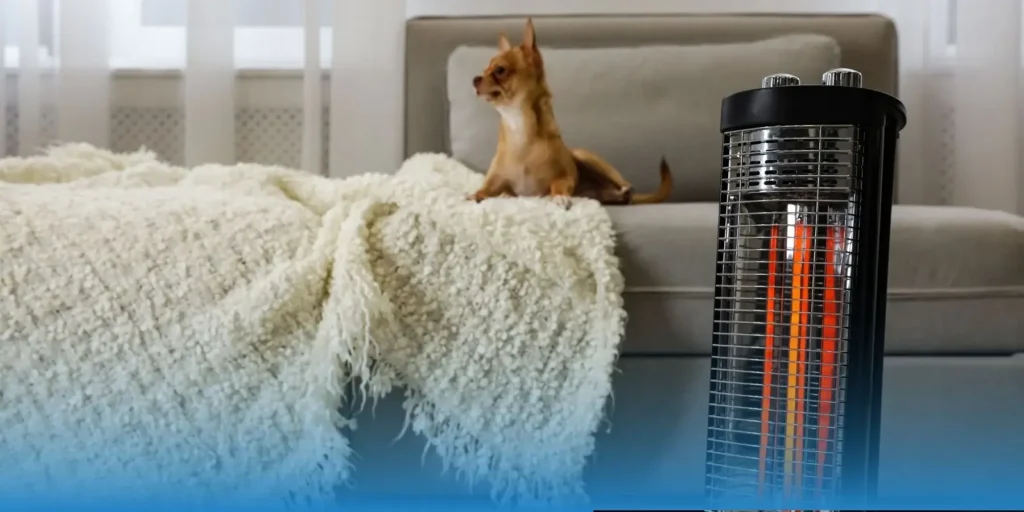
Keeping Pets Safe Around Heaters
As the temperatures drop, many of us rely on space heaters, fireplaces, and electric blankets to stay warm at home. However, these can pose serious risks to pets who are also seeking warmth.
When using a fireplace, make sure a protective cover is in place to shield against sparks and prevent curious pets from getting too close, as they could burn themselves or singe their whiskers. As a general rule, keep space heaters and other heating devices out of your pet’s reach, as they can be knocked over and cause burns or fires.
Electric blankets should never be left unattended with pets around. If your pet chews on the wires, it can lead to burns or even electric shocks. The safest option for keeping your pet warm and cozy is a pet-safe warming blanket, which can be found at most pet retailers.


Beating Pet Boredom in the Winter
With the colder temperatures and shorter daylight hours, pets often get less outdoor time and exercise during the winter. Unfortunately, too much time indoors can lead to boredom, which may result in unwanted behaviors like chewing, digging, or trying to escape.
To keep your pet mentally stimulated and physically engaged, provide plenty of activities and enrichment tools. Treat puzzles, interactive toys, lick mats, and snuffle mats are great ways to keep them entertained. It’s also a good idea to set aside some time each day for indoor play sessions to keep your pet happy and prevent boredom from setting in.
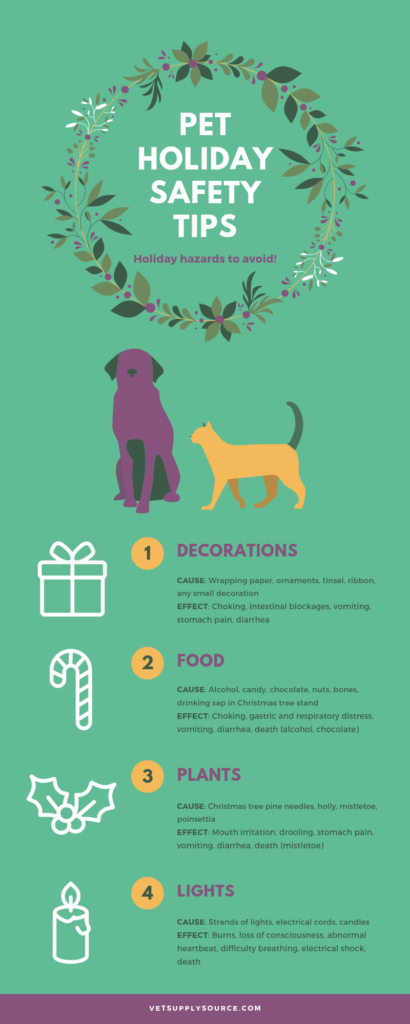
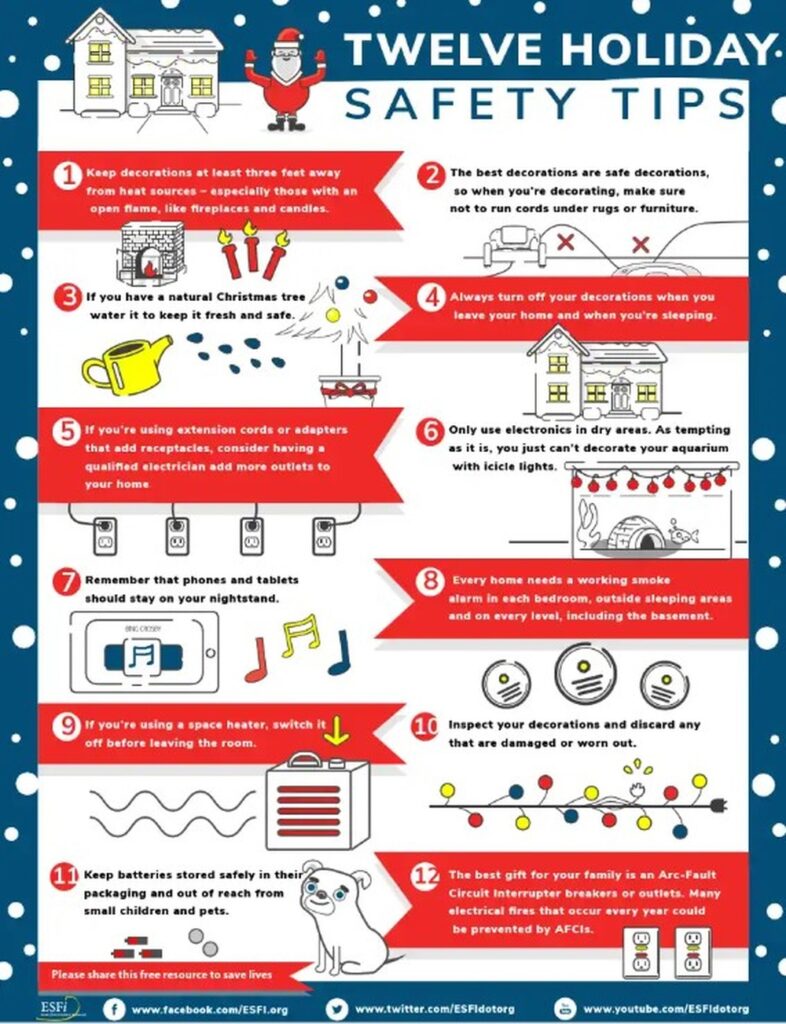
Avoiding Holiday Hazards
Winter festivities bring a lot of joy, but they can also present some potential hazards for your pets. Holiday decorations, especially glass ornaments, lights, and anything with string, can be dangerous if your pet gets curious. Common holiday foods and treats, such as turkey bones, can lead to choking or gastrointestinal blockages.
Also, many holiday treats that are fine for humans can be toxic to pets. Chocolate, raisins, and other common ingredients should be kept well out of reach. Don’t forget that plants like holly, mistletoe, lilies, and chrysanthemums can also be harmful. To keep your pets safe, be cautious and make sure dangerous foods and plants are out of their reach.
If you’re hosting parties or entertaining guests, keep in mind that some pets can feel stressed by the noise and crowd. Make sure they have a quiet, comfortable place to retreat if they need a break. With so many doors opening and closing, pets can easily slip out unnoticed. Consider using barriers like pet gates, alerting guests about your pets, or keeping them in a separate room to prevent any escapes.

Final Winter Safety Tips for Pets
Winter can be a lot of fun for pets, especially those who love playing in the snow, but it’s important to keep safety in mind.
To be prepared for any unexpected adventures—whether your pet decides to dash through the snow or sneak a bite from the holiday treat table—make sure they have up-to-date ID tags and a microchip. It’s also a good idea to have contact information for the nearest emergency vet, pet poison control, and your pet insurance provider on hand, just in case.
For added peace of mind during winter and beyond, consider a Lifetime Protection Membership from 24Petwatch. With this service, you’ll have access to a vet telehealth service for any health questions, discounts on pet-sitting and dog-walking services, and specialists to help recover your pet if they go missing. With over 730,000 lost pets successfully reunited, 24Petwatch is there to support you and your pet when you need it most.

